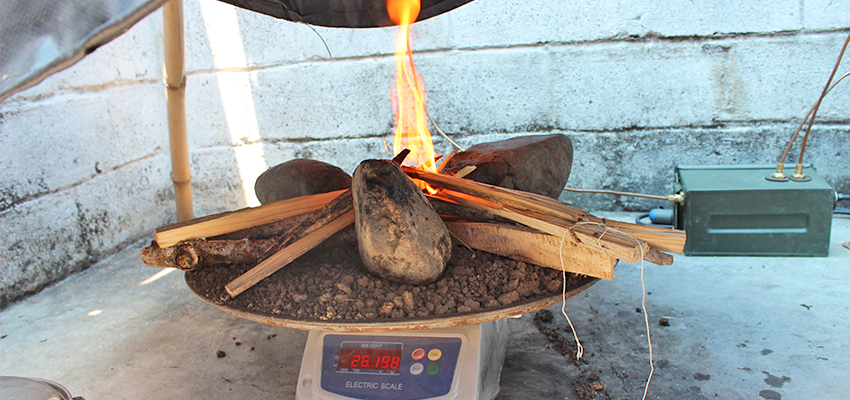
![]() Field Evaluation of Alternative and Traditional Cooking Fuels in Haiti
Field Evaluation of Alternative and Traditional Cooking Fuels in Haiti
The aim of this study was to perform a rigorous field evaluation of alternative cooking fuel during actual use. Chabon Vet (green charcoal) fuel briquettes are produced by Carbon Roots International (CRI) in Cap Haïtien, Haiti and are made from carbonized agricultural waste, predominantly sugarcane bagasse.During this study Chabon Vet was compared to other commonly used wood-derived fuels (wood charcoal and firewood). 93% of Haitians rely on wood and wood charcoal as their primary household energy source. This has resulted in mass deforestation leaving only 2% of Haiti’s original forest cover remaining. In addition, Haitians spend, on average, 50% of their income on cooking fuel. CRI is addressing these urgent issues by introducing a renewable alternative to wood fuels made from readily available agricultural waste.
A mobile laboratory was developed and deployed by a team from MIT’s D-Lab to perform cooking technology evaluations in and around Cap-Haïtien where Chabon Vet is produced and sold. A modified version of the standard laboratory test method for cooking technology, the Water Boil Test (WBT), was used during the evaluations. The field team set up the mobile lab at a different household each day and worked with stove users to perform the tests. This method is unique in that it utilizes the advanced measurement methods commonly used in controlled laboratory testing, but brings the laboratory to the home and involves the user to incorporate local practice and behavior into the test.
A total of 57 individual WBTs were performed in seven different households and one commercial setting (restaurant). Of the 57 WBTs performed, 44 were completed successfully. Three different fuels (Chabon Vet, wood charcoal and firewood) and eight different cookstoves were tested.

